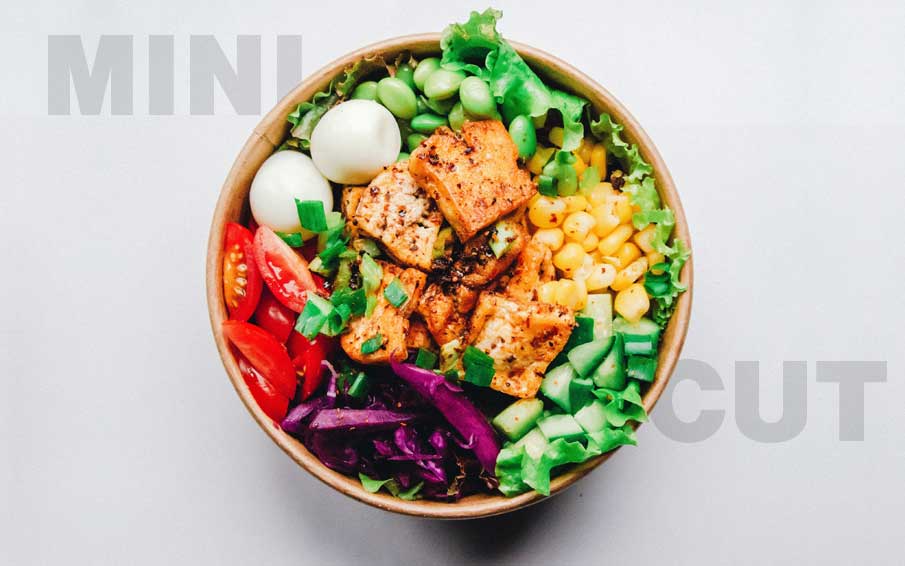Your Cart is Empty

Take A Mini Cut on Your Diet Plan
2 min read
WHAT IS A MINI CUT?
It’s in the name! It’s a “mini” and/or shorter cut. How short you might ask? Typically, I recommend it to be the length of one mesocycle (3 to 6 weeks generally) anything more than that I would view as no longer a “mini-cut” but rather a traditional fat loss phase. The mini cut will be much more aggressive and “extreme” with a larger calorie deficit relative to the traditional fat loss phase.
TWO KEYS:
1. It’s short – 1 mesocycle in length (3 to 6 weeks)
2. It’s aggressive – as aggressive as a person can be whilst sustaining muscle
WHY DO A MINI CUT?
Mini cut's main purpose are to extend your massing phases: 1. If you’re a competitor you don’t want to get too far away from stage leanness. 2. The longer we are in a calorie surplus the more our appetite worsens, making it harder to mass. 3. Getting a bit leaner can increase your insulin sensitivity, making mass gaining more effective.
HOW LARGE SHOULD YOUR DEFICIT BE ON A MINI CUT?
It’s going to be as big as it can be, without risking muscle loss.
WHAT SHOULD YOUR MINI-CUT NUTRITION LOOK LIKE?
1. PROTEIN
At an absolute minimum, I would recommend shooting for one gram per pound of body weight, if not slightly higher to preserve lean tissue.
2. FAT
0.3 grams per pound bodyweight is typically towards the lower end of my recommendation.
3. SETTING CARBS
EASY...the remaining calories that we have left at our disposal.
HERE IS a DECENT “ROUGH” FORMULA”:
(Ideal number of lbs lost per week – actual lbs lost per week) X 500 = the number of calories to remove from your diet.
Example: If you were aiming for 2lbs to be lost, and on week 2 you only lose 0.5lbs, then you know you can probably do better with a greater deficit. (2 – 0.5) = 1.5 X 500 = 750 calories, and if you were eating 2500 calories a day on average, if you want to lose close to the 2lb mark you’ll drop down to 1750 k/cals.
Subscribe
Sign up to get the latest on sales, new releases and more …
